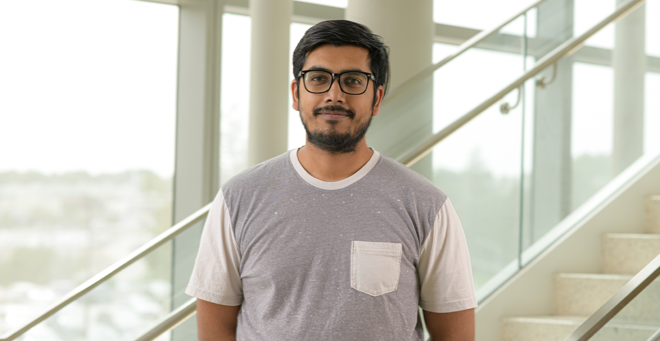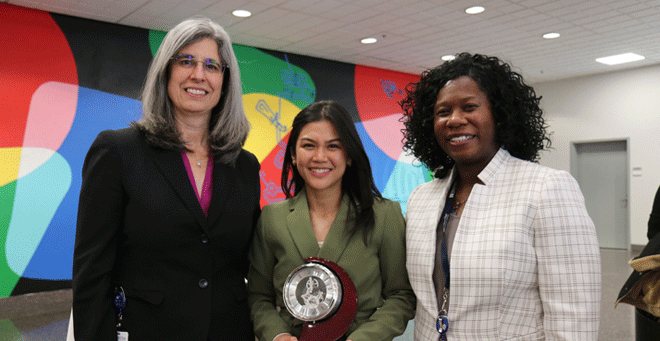
Arthur Mercurio, PhD
Research aimed at identifying the mechanisms that promote resistance to radiation therapy in patients with triple negative breast cancer is underway at UMass Chan Medical School.
Arthur M. Mercurio, PhD, professor of molecular, cell & cancer biology, received a $2.6 million cancer research award from the National Institutes of Health.
“There are different types of tumor cells within a tumor. Some are more aggressive than others. When you treat a solid tumor with radiation therapy, you kill a large fraction of the cells. But the cells that remain are the ones that later go on to metastasize and cause problems. We are focused on this population of tumor cells that resist therapy,” Dr. Mercurio said.
According to the American Cancer Society, triple negative breast cancer accounts for about 10 to 15 percent of all breast cancers and is most common in women under age 40 and women who are Black. Triple negative breast cancer grows and spreads faster than other kinds of invasive breast cancer, has fewer treatment options and typically has a worse prognosis. It is called triple negative breast cancer because it contains neither estrogen nor progesterone receptors and little to no HER2 protein, all three of which could be potential therapeutic targets if present.
At a glance |
|---|
|
Mercurio is developing a novel therapeutic approach for overcoming resistance to radiation therapy in triple negative breast cancer. He proposes using monoclonal antibodies to inhibit the binding of vascular endothelial growth factor (VEGF) signaling through neuropilin-2 (NRP2) in a population of tumor cells present in triple negative breast cancer to overcome the resistance.
The Mercurio lab is using a therapeutic monoclonal antibody, created by aTyr Pharma in San Diego, designed specifically to block the binding of VEGF to neuropilin-2.
“What we’ve shown is that when you combine radiation with this antibody, you get much more marked tumor regression than you would have traditionally. As part of this whole process, we’ve worked out the mechanism by which this pathway promotes resistance to therapy,” Mercurio said.
The work is part of a larger research program in the Mercurio lab that has also shown the ability of therapeutic neuropilin-2 antibodies to improve the response of breast cancer to chemotherapy and prostate cancer to immunotherapy. These studies were recently featured in two issues of Science Translational Medicine.
The research is being conducted in the Mercurio lab by Ayush Kumar, an MD/PhD student; Hira Goel, PhD, assistant professor of molecular, cell & cancer biology; and Mengdie Wang, PhD, a postdoctoral associate. The Mercurio lab is collaborating with Thomas J. Fitzgerald, MD, chair and professor of radiation oncology, and his team.
“Receiving this award is an endorsement of the quality and the impact of the work we are doing. It allows us to continue and expand our collaborative efforts on campus,” Mercurio said.

